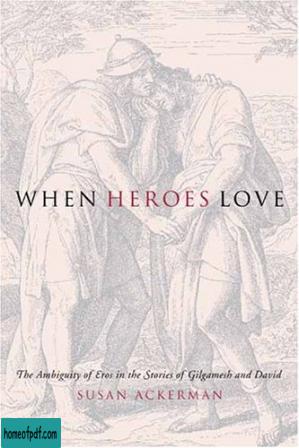When Heroes Love: The Ambiguity of Eros in the Stories of Gilgamesh and David (Gender, Theory, and Religion)
该资源由用户: 八坂雅媚 上传 举报不良内容

尊敬的读者:
欢迎您访问我们的网站。本站的初衷是为大家提供一个共享学习资料、交换知识的平台。每位用户都可以将文件上传至网盘并分享。
然而,随着用户上传的资料增多,我们发现部分不宜或版权问题的书籍被分享到了本站。
为此,我们已经关闭了分享入口,并进行了多次书籍审查,但仍有部分内容未能彻底审查到位。
在此,我们恳请广大读者与我们共同监督,如发现任何不宜内容,请 点击此处 进行举报,我们会第一时间处理并下架相关内容。
希望我们能共建一个文明社区!感谢您的理解与支持!
扫一扫即可关注本站(PDF之家)微信公众账号
发送您想要找的书籍名称即可找到书籍

本站为非盈利性网站, 但服务器成本高昂, 如果本站内容对您有帮助, 欢迎捐赠, 您的鼓励是我们最大的动力!
声明
本站资源来源于网络及个人用户网盘上传,仅用于分享知识,学习和交流! 本站不保存,不制作,不出售任何图书。请您下载完在24小时内删除。 资源禁用于商业用途!如果您喜欢本站资源,请购买正版,谢谢合作!
扫码支持一下:


猜你喜欢

《超级记忆力训练法(精编版) 》刘志华文字版
View more
《我喜欢你,像风走了八千里》末那大叔修订版
View more
《智慧的盛宴》谭郭鹏文字版
View more
《人人都该懂的互联网思维》伯纳多 •A. 胡伯曼
View more
《在黑暗中等》乙一
View more
《孔子》和辻哲郎文字版
View more
《侦探AI》早坂吝文字版
View more
《茶人三部曲:全3册》王旭烽文字版
View more
《柠檬桌子》朱利安•巴恩斯经典版
View more
《荒原:艾略特文集·诗歌》托·斯·艾略特
View more
《猫咪与黑暗》米亚·科托
View more